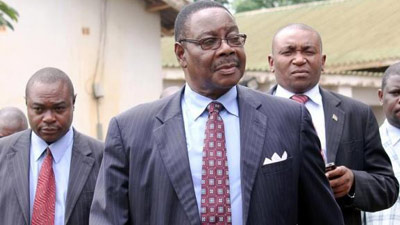Malawi President Peter Mutharika said on Monday economic stability and national unity would be the focus of his government as he became the fifth leader of the southern African state following a disputed election.
Mutharika, declared the winner of the May 20 election last week, said his administration would target annual economic growth of 7% and promised a lean cabinet of 20, including deputy ministers – half the size of previous governments.
“We are determined to change the direction of the economy. This is why …I chose a running mate outside of political ranks,” Mutharika said in his inauguration speech.
The new vice president, Saulos Chilima, is an economist and former Managing Director of telecommunications firm Airtel, a local unit of Bharti Airtel.
Mutharika, a former law professor, also sought to mend fences with his predecessor Joyce Banda, who at one point disputed the validity of the vote and demanded a re-run.
Banda did not attend Mutharika’s inauguration in the commercial capital, Blantyre.
“I look forward to shaking hands with her to bury the past. I come to her with an olive branch. Don’t let it drop,” Mutharika said.
The poll, which was plagued by logistical problems and followed by sporadic protests, was declared generally “free, peaceful and credible” by a Southern African Development Community observer mission.
Mutharika (74) is the brother of president Bingu wa Mutharika, who died in office in April 2012.
Banda took over after his death and tried to rebuild an economy hammered by fuel and dollar shortages, but prices have soared since she devalued the kwacha currency on the advice of the International Monetary Fund (IMF).
In January, the IMF rated Malawi’s economic performance “broadly satisfactory” after completing its third and fourth reviews under a credit facility, enabling the Fund to disburse around $20 million.
But recent revelations of corruption – dubbed ‘Cashgate’ in the Malawi media – led key donors to withhold millions of dollars in budget support to a country that has traditionally relied on foreign aid for around 40 percent of its budget.
“The scandal is evidence that we had lost our moral compass. We need new morality,” Mutharika said.
He added that his administration would pursue a foreign policy that was in the best interest of the country.
“Let me assure the West that we’ll maintain traditional ties, but we now also have new friends,” he said, citing in particular China, Brazil and India.




